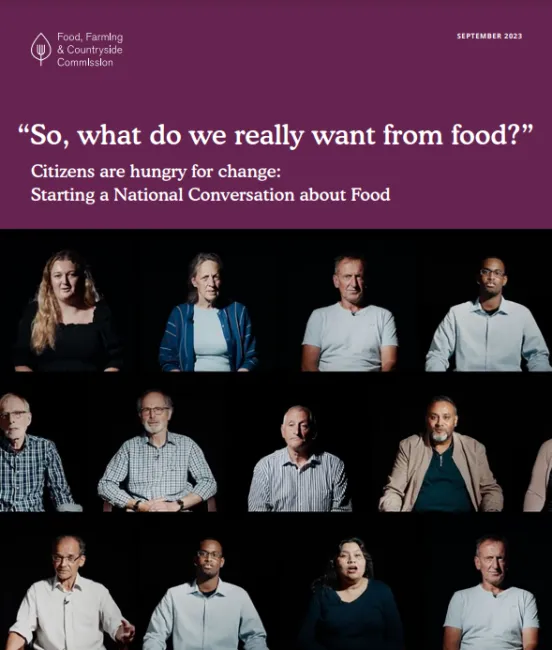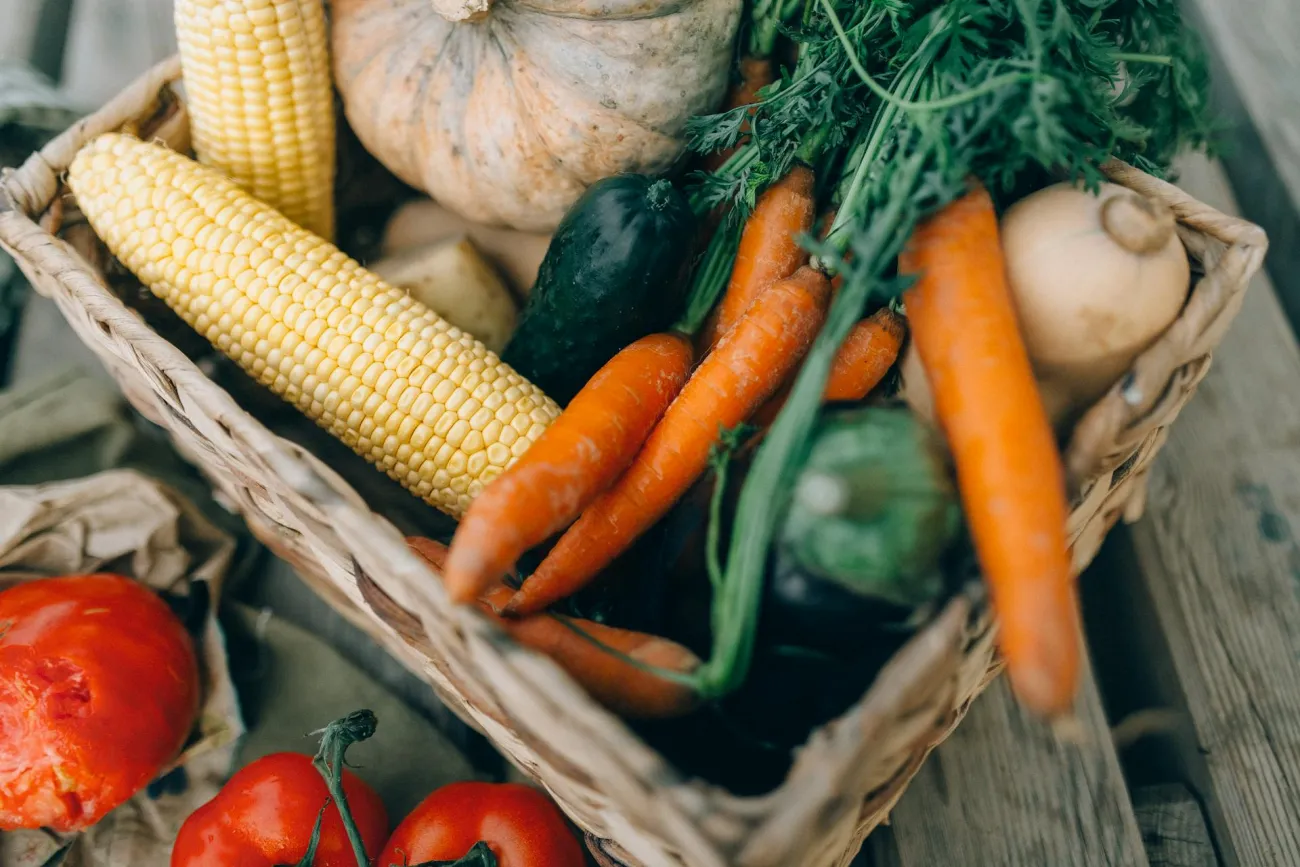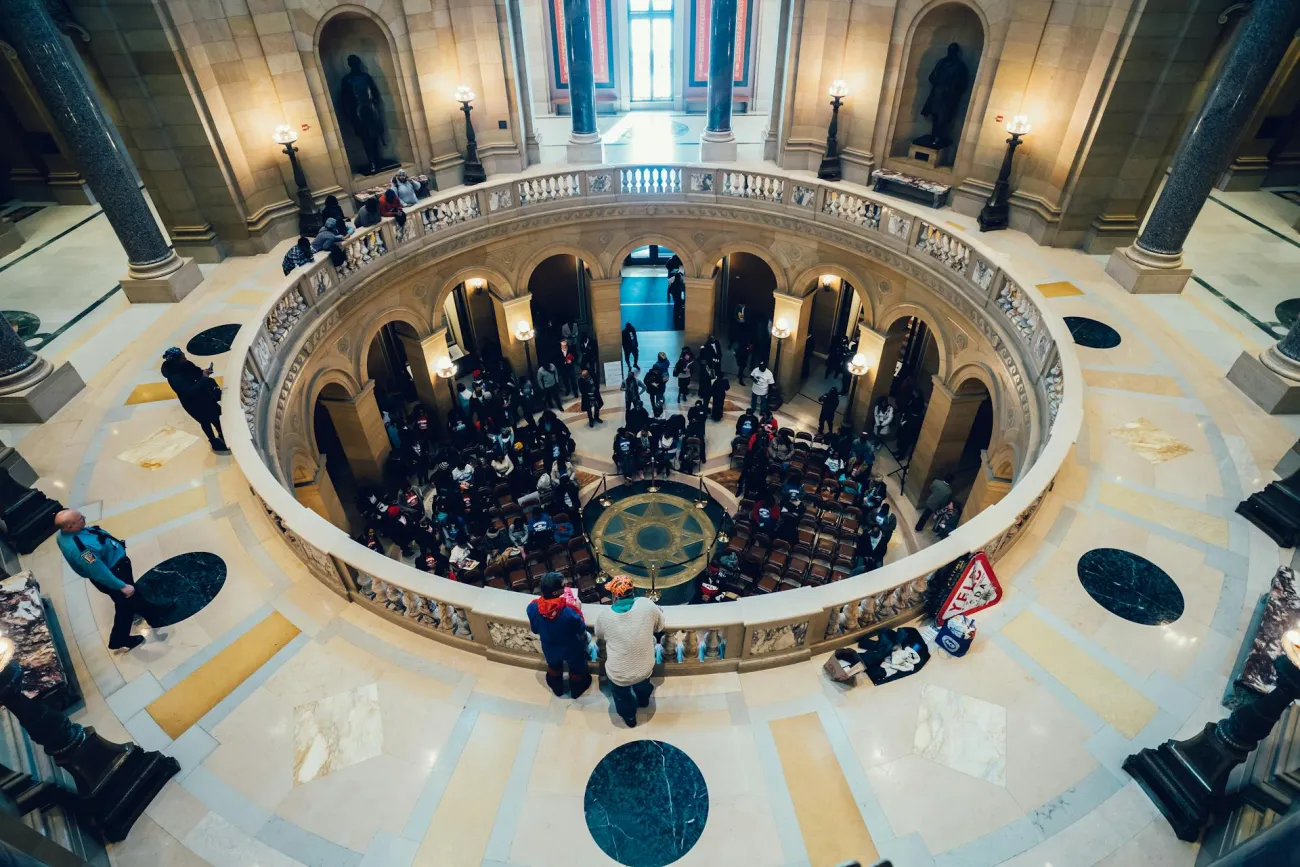In the UK, there is a pervasive narrative that people don't want a ‘nanny state’ intervening in the food system, they only want ‘cheap food’. This report, based on extensive public dialogue sessions in Birmingham and Cambridge, and a new national poll of 2,000 people, shows that citizens across all demographics, ages and political groups reject these concerns and overwhelmingly back increasing government intervention to fix the food system.

Summary
The report decisively shows, through both workshop dialogues and polling, that citizens want swift and wide-reaching action on food to protect health, nature and the environment. Many believe that the ‘people don’t want a nanny state’ argument is an excuse for inaction. In fact, 75% of the public think that the government is not doing enough to “ensure that everyone can afford healthy food” and 71% think the government should aspire to higher environmental standards for food production. Some of the most popular policies to ensure this included:
- Stronger standards for the food provided in hospitals and schools (84%)
- Government support for those on low incomes to have enough healthy food (79%)
- Polluter pays fine for food production (79%)
- Tighter regulations to protect against industrial farming practises that are harmful to nature (78%)
- Targets set for reducing UPF sales (74%)
On top of these, citizens agreed that there need to be great support systems in place both for farmers to farm more sustainably, including investments and incentives to do this, and for consumers to eat more healthy and sustainably, through information campaigns, better labelling and support for low income families to eat healthy and sustainable food.
Despite the current cost of living crisis and the recent spike in food prices, participants were also largely willing to accept higher food prices if it facilitated better food and farming. Participants also responded positively to accepting less food choice to achieve a fairer, more sustainable food system. This included limiting meat intake, reducing the availability of UPFs and putting restrictions on foods that are not ethically sourced. Overall, participants wanted a healthier and greener food environment, that restricts junk food advertising, sets higher standards for public sector catering and tightens controls on the availability and marketing of UPFs.
Read more here




Comments (0)